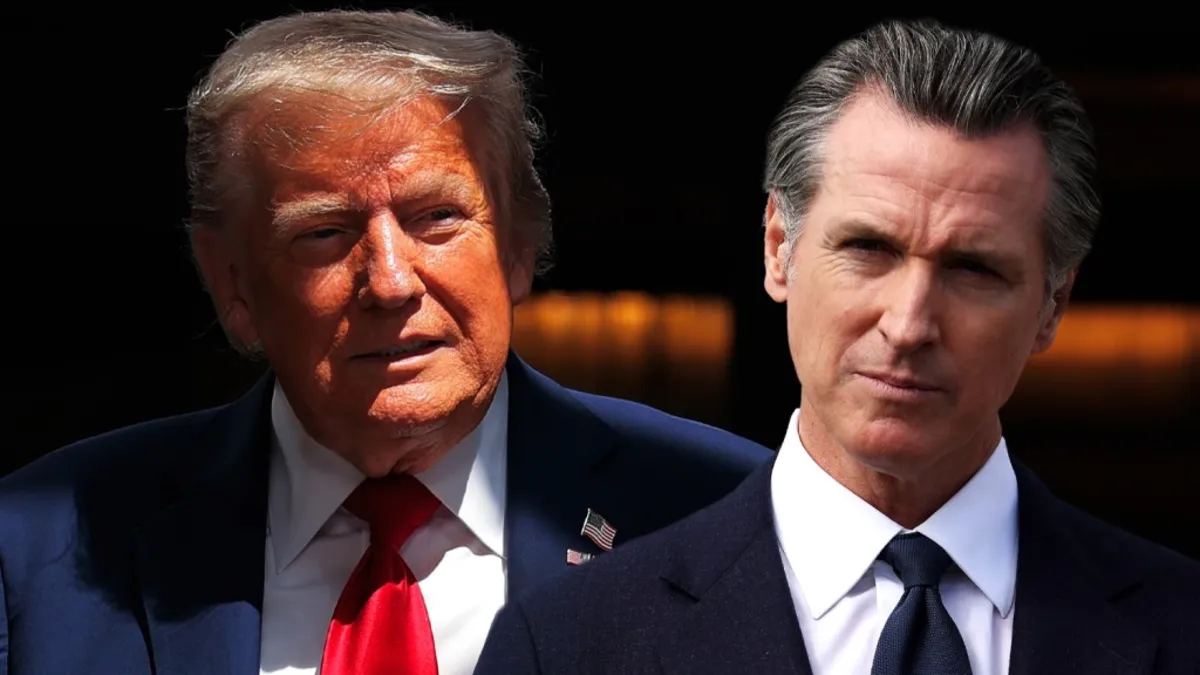
Former President Donald Trump is poised to take his legal battle over the control of California's National Guard troops to the Supreme Court, should he face another defeat against Governor Gavin Newsom. During a recent appeals court hearing, a Department of Justice attorney indicated that they plan to appeal directly to the Supreme Court if their client, Trump, loses the ability to deploy National Guard troops in Los Angeles.
In response to ongoing protests against aggressive ICE raids and the abduction of undocumented immigrants, thousands of heavily armed National Guard troops, along with 700 U.S. Marines, have been stationed in downtown Los Angeles for over a week. The attorney representing the Trump administration urged the judges to grant a motion for a stay pending appeal, stating, “If you deny our stay pending appeal, we would ask the court to give us an opportunity to seek emergency relief from the Supreme Court.” This legal strategy, commonly employed by Trump, is aimed at the conservative majority of the High Court.
The anticipated ruling from the three-judge panel—comprising Trump appointees Mark Bennett and Eric Miller, along with Joe Biden appointee Jennifer Sung—is expected in the coming days. However, the outcome may be overshadowed by another lower court hearing scheduled for Friday. This series of legal maneuvers follows the federal takeover of the California National Guard, which was executed without adequately informing Governor Newsom, raising serious legal and constitutional questions.
The deployment of the National Guard began on June 7, prompted by a surge of protests in Los Angeles due to harsh ICE raids targeting undocumented immigrants. Trump's decision to federalize the troops was particularly controversial, occurring against the Governor's objections. The initial deployment of 2,000 troops, later supplemented by Marines, did not quell protests; instead, it led to increased tensions and violence in the area surrounding federal facilities where ICE detainees were held.
In response to Trump's actions, the state of California filed a lawsuit on June 9 to block what many see as an unprecedented seizure of National Guard control. Governor Newsom sought a temporary restraining order shortly after, although it was initially denied. A hearing was set for June 12, where Judge Charles Breyer ordered Trump to return control of the California National Guard to the Governor by noon on June 13. However, the Department of Justice quickly appealed this decision.
As tensions escalated, a three-judge panel from the 9th Circuit Court of Appeals reversed Judge Breyer’s order, reinstating Trump's control over the National Guard. In a further twist, Governor Newsom filed a motion for a preliminary injunction against the troop deployment, with another hearing scheduled before Judge Breyer.
California's legal filing emphasizes the importance of civilian law enforcement and argues that the federal government's actions violate the Posse Comitatus Act and the Tenth Amendment. The state’s legal representatives argue that enjoining the militarization of Los Angeles is crucial for restoring public confidence in the First Amendment right to peaceful protest.
Despite the increased military presence, local communities have continued to protest against ICE's actions, which many characterize as “kidnappings.” Even as military and police presence in downtown Los Angeles began to diminish, the justification for the National Guard's continued deployment under Trump's command persisted.
The battle over who controls the National Guard in Los Angeles is ongoing and reflects broader tensions between federal authority and state rights. As the situation evolves, with the lifting of the curfew in downtown Los Angeles and the potential for further legal challenges, it remains to be seen how these events will impact the residents and the political landscape in California.